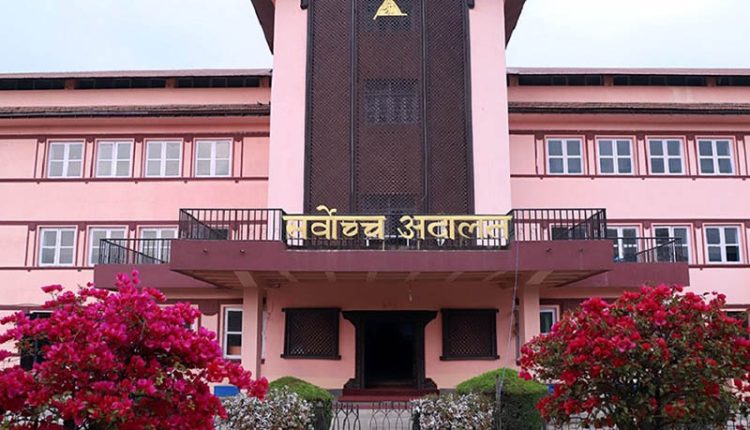Supreme Court issued a directive urging the government to seek a diplomatic resolution to the ongoing border dispute between Nepal and India
Kathmandu: The Supreme Court (SC) has issued a directive urging the government to seek a diplomatic resolution to the ongoing border dispute between Nepal and India. The apex court’s decision emphasizes the importance of achieving clarity and demarcation in border areas, aligning with previous treaties and historical documents.
In their judgment, justices Prakash Man Singh Raut and Purushottam Bhandari of the bench stated, “Efforts should be made to manage and regulate open borders through mutual respect, equality, and shared interests. If additional treaties are necessary, they should be pursued.”
Although the verdict on the writ petition, filed by border expert Buddhi Narayan Shrestha, senior advocate Chandrakant Gyawali, advocates Leeladhar Bimal Gyawali, and Shashi Kumar Karki, was issued in April 2078 BS, the SC released the full verdict only on Wednesday.
In addition to advocating for a diplomatic resolution, the SC has called for systematic regulation and management of border crossings. Travelers entering Nepal will be required to present their official identity cards at immigration offices or security agencies to maintain accurate records of border movements.
Furthermore, the government has been instructed to leverage the latest information technology tools for effective border regulation. The SC has recommended the use of CCTV surveillance and drones to curb illegal activities in the border areas.
Additionally, the SC has mandated the government to expedite the resolution of disputed borders, emphasizing that the disputes should be settled in line with the past treaties and historical documents between Nepal and India.
The SC’s directive also emphasizes the importance of safeguarding Nepal’s independence, sovereignty, geographical integrity, nationalism, self-respect, protection of the rights and interests of Nepali citizens, border security, and the preservation of Nepal’s national interests.


Comments are closed.